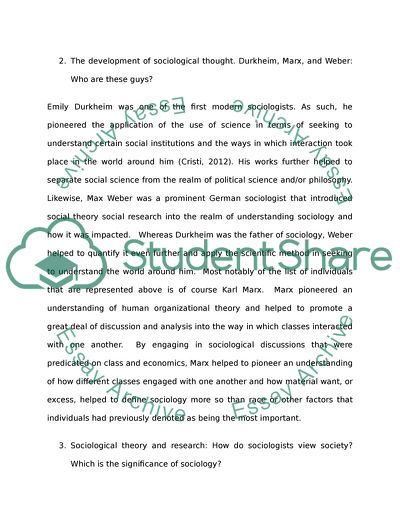Cite this document
(The Relationship of Sociology to the Other Social Sciences Assignment Example | Topics and Well Written Essays - 2250 words, n.d.)
The Relationship of Sociology to the Other Social Sciences Assignment Example | Topics and Well Written Essays - 2250 words. https://studentshare.org/sociology/1833822-general-sociology
The Relationship of Sociology to the Other Social Sciences Assignment Example | Topics and Well Written Essays - 2250 words. https://studentshare.org/sociology/1833822-general-sociology
(The Relationship of Sociology to the Other Social Sciences Assignment Example | Topics and Well Written Essays - 2250 Words)
The Relationship of Sociology to the Other Social Sciences Assignment Example | Topics and Well Written Essays - 2250 Words. https://studentshare.org/sociology/1833822-general-sociology.
The Relationship of Sociology to the Other Social Sciences Assignment Example | Topics and Well Written Essays - 2250 Words. https://studentshare.org/sociology/1833822-general-sociology.
“The Relationship of Sociology to the Other Social Sciences Assignment Example | Topics and Well Written Essays - 2250 Words”. https://studentshare.org/sociology/1833822-general-sociology.


